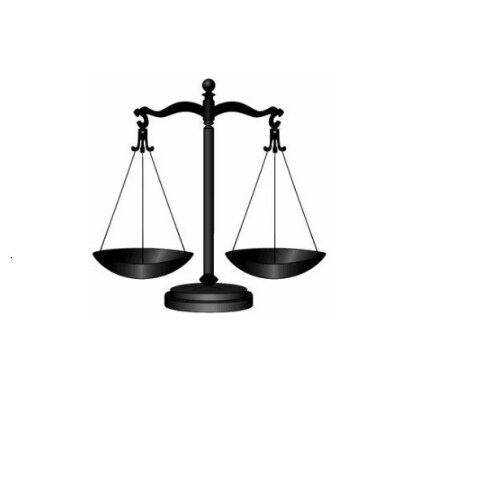Best Constitutional Law Lawyers in Port Harcourt
Share your needs with us, get contacted by law firms.
Free. Takes 2 min.
List of the best lawyers in Port Harcourt, Nigeria
About Constitutional Law in Port Harcourt, Nigeria
Constitutional Law in Port Harcourt, Nigeria, is a framework that guides the creation and execution of laws within the region. It defines the structure, functions, and limits of governmental power, and encompasses the rights and duties of the citizens. Nigeria operates under a federal constitutional republic, with its constitution being the supreme law of the land. Like elsewhere in Nigeria, Port Harcourt follows this legal structure closely, dealing with matters related to the application of national constitutional principles at the local level. This includes issues of human rights, governance, separation of powers, and federalism.
Why You May Need a Lawyer
There are several scenarios where you might require the expertise of a constitutional lawyer in Port Harcourt. Common situations include disputes over civil rights violations, conflict between federal and local laws, issues with electoral processes, or challenges to governmental decisions. Businesses may also need constitutional advice to ensure compliance with regulations, especially in sectors heavily influenced by local government policies. Additionally, individuals or entities involved in litigation that pertains to constitutional interpretation or enforcement will benefit significantly from engaging a knowledgeable lawyer.
Local Laws Overview
In Port Harcourt, the local legal environment reflects the broader constitutional framework of Nigeria. Key aspects of local laws pertinent to constitutional matters include:
- Human Rights: Locally integrated as per Chapter IV of the Nigerian Constitution, with emphasis on protecting citizens' rights against any abuse by the state.
- Federal vs State Powers: Port Harcourt, as part of Rivers State, navigates the division of powers between the national and state governments, often requiring constitutional interpretation.
- Local Government Authority: Understanding the authority of local councils and their interactions with state and federal structures.
- Public Policy Disputes: Legal frameworks governing issues like resource control, environmental laws, and taxation in compliance with constitutional mandates.
Frequently Asked Questions
What is constitutional law?
Constitutional law involves the study and interpretation of the national constitution to ensure laws and policies adhere to its provisions. It encompasses the protection of citizen rights and the limitations of governmental power.
How is constitutional law enforced in Port Harcourt?
Constitutional law is enforced through the judicial system, with courts having the authority to interpret and apply constitutional principles in legal cases. Lawyers specializing in this field advocate on behalf of clients to protect their rights.
What are my rights under the Nigerian Constitution?
Citizens have a broad range of rights under the Nigerian Constitution, including the right to life, freedom of speech, assembly, religion, and protection from unlawful detention or discrimination.
How do I challenge a law or policy that I believe is unconstitutional?
You would need to file a suit in a competent court of law, typically involving a constitutional lawyer to address the specific issues regarding the alleged unconstitutional aspect.
Can local governments in Port Harcourt make laws independent of the state or federal government?
Local governments can make bye-laws within their jurisdiction, provided they do not conflict with state or federal laws.
What should I do if my constitutional rights are violated?
Seek legal advice immediately. A constitutional lawyer can help you understand your rights, gather evidence, and represent you in seeking redress through the courts.
Are there any special legal considerations for businesses in Port Harcourt?
Yes, businesses must comply with constitutional requirements concerning local regulations, taxes, and labor laws, especially given Port Harcourt's status as a key economic hub.
What role do state courts play in constitutional law?
State courts interpret and enforce constitutional law within their jurisdiction, resolving disputes and ensuring laws align with constitutional mandates.
Is there a difference between constitutional lawyers and civil rights lawyers?
While both fields overlap, constitutional lawyers focus broadly on issues related to constitutional interpretation, while civil rights lawyers may specifically handle cases dealing with individual rights violations.
Can I represent myself in a constitutional law case?
While legally possible, it's not recommended due to the complex nature of constitutional law. A lawyer can provide expertise in navigating the legal system and building a robust case.
Additional Resources
The following resources can provide further assistance for those grappling with constitutional law issues in Port Harcourt:
- The Nigerian Bar Association - Offers directories and resources for finding qualified lawyers.
- Rivers State Ministry of Justice - Provides legal advice and representation for state-related matters.
- Legal Aid Council of Nigeria - Offers support for individuals who cannot afford legal counsel.
- National Human Rights Commission - Provides avenues for reporting human rights violations.
- Civil Society Organizations - Often involved in advocacy and legal support for constitutional rights.
Next Steps
If you believe you need legal assistance in constitutional matters, consider the following steps:
- Identify the precise nature of your legal issue to find the right legal practitioner.
- Research and reach out to constitutional lawyers in Port Harcourt to discuss your case.
- Gather all relevant documentation and evidence to present a clear basis for your case.
- Consider whether you qualify for legal aid and contact relevant organizations if necessary.
- Be proactive in communicating with your lawyer to ensure you understand all proceedings and your rights under the law.
Lawzana helps you find the best lawyers and law firms in Port Harcourt through a curated and pre-screened list of qualified legal professionals. Our platform offers rankings and detailed profiles of attorneys and law firms, allowing you to compare based on practice areas, including Constitutional Law, experience, and client feedback.
Each profile includes a description of the firm's areas of practice, client reviews, team members and partners, year of establishment, spoken languages, office locations, contact information, social media presence, and any published articles or resources. Most firms on our platform speak English and are experienced in both local and international legal matters.
Get a quote from top-rated law firms in Port Harcourt, Nigeria — quickly, securely, and without unnecessary hassle.
Disclaimer:
The information provided on this page is for general informational purposes only and does not constitute legal advice. While we strive to ensure the accuracy and relevance of the content, legal information may change over time, and interpretations of the law can vary. You should always consult with a qualified legal professional for advice specific to your situation.
We disclaim all liability for actions taken or not taken based on the content of this page. If you believe any information is incorrect or outdated, please contact us, and we will review and update it where appropriate.










